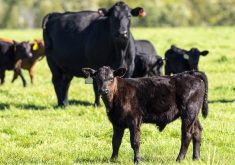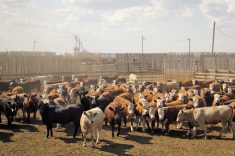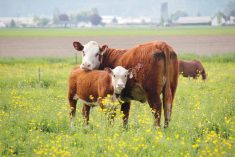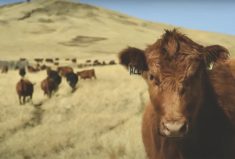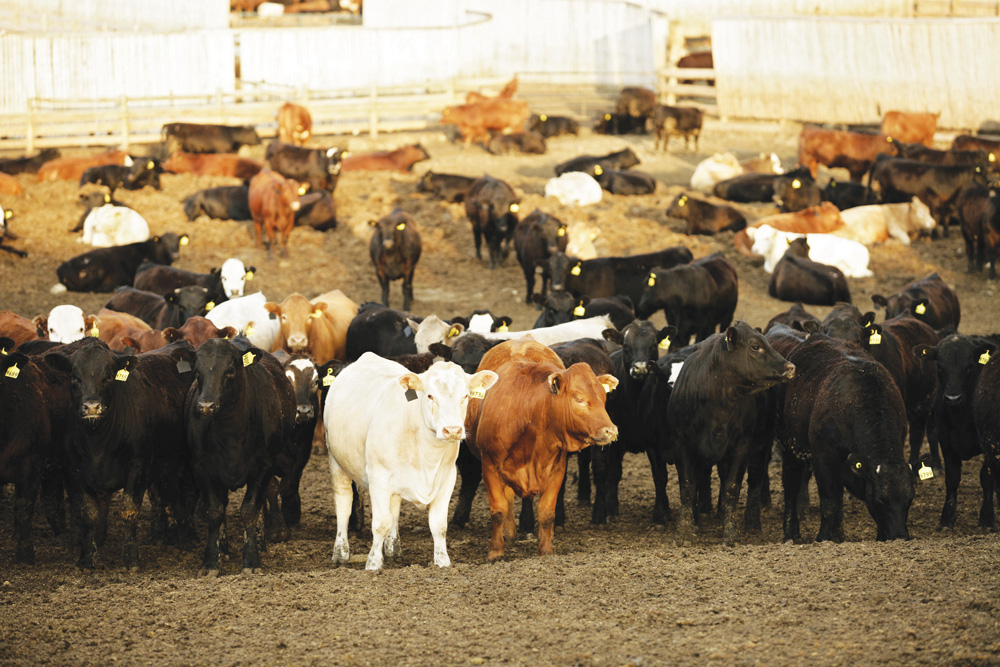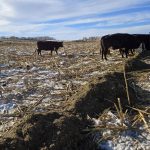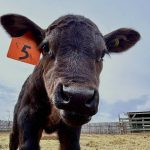Canadians were more likely to consume certified sustainable beef last year than ever before.
The Canadian Roundtable for Sustainable Beef (CRSB) says that 5.6 million pounds of beef were sold from July 1, 2020 to June 30, 2021 with a CRSB framework claim. The framework lays out sustainability standards for farms, feedlots, processors and others, and audits facilities to ensure they’re meeting those standards, while tracking cattle through the resulting certified sustainable value chain.
Read Also
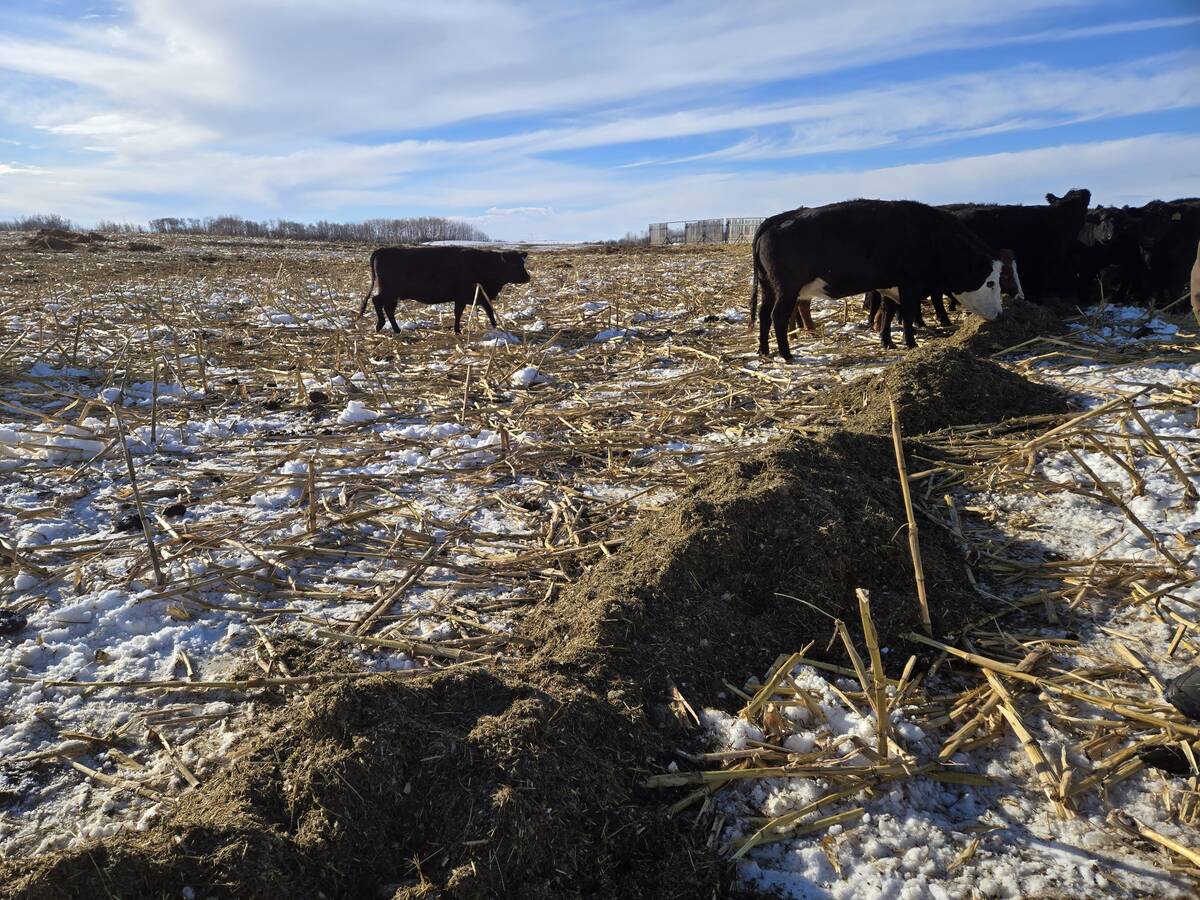
Winter grazing strategies offer cost relief for Manitoba cattle producer
How cover crops, straw and silage pile grazing fit in a western Manitoba rancher’s winter feeding plan — and how to make sure they meet cattle’s nutritional needs.
The 5.6 million pounds represent a 17 per cent jump over the previous year, when 4.8 million pounds of meat were sold with a claim.
Why it matters: Canada’s certified sustainable beef value chain saw volume growth, thanks to five more companies committing to actively source from it.
The smoothing of pandemic-driven value chain issues, which the beef sector in general struggled with in 2020 thanks to processing slowdowns, may have played somewhat into that increase, CRSB chair Anne Wasko said. At the same time, she said, demand for certified meat was likely the main driving factor.
“This is certainly a reflection of the end-user level,” she said.
Several new end-users joined the list of businesses drawing from the certified value chain this year.
In May, Walmart Canada announced it would start using the CRSB’s ‘mass balance’ mark on Your Fresh Market branded beef patties, the first retail business to do so (Loblaw Companies previously announced the purchase of one million pounds of certified beef, but is not using a claim mark). The mark denotes that at least 30 per cent of beef in that product came from CRSB-certified farms.
Walmart was also joined by B.C.-based Intercity Packers (the first to offer certified beef via home grocery delivery), Shark Club Sports Bar and Grill, Gordon Choice (the first boxed beef program to make such a claim), and Centennial Farm Service (the first premium beef brand with a claim).
Those businesses add their names to McDonald’s Canada, Harvey’s and Chop Steakhouse and Bar, which were already using a claim mark.
“When you’ve got more end-users, drawing more product through, I think that’s kind of a key reflection of that increased growth from a demand perspective,” Wasko said.
The roundtable also added a third auditing body to the framework, bringing in the Ontario Corn Fed Beef Quality Assurance Program to provide audit services to Ontario feedlots in December 2020.
Wasko says she expects the addition of the Ontario organization will help draw interest from that province.
Verified Beef Production Plus, which provides audits for producers and Where Food Comes From, servicing producers and processors, remains as other auditing bodies.
Certified operations have also jumped. As of June 30, 2021, a total of 1,332 farms and ranches had been audited and certified to CRSB standards.
Audits this year were much smoother than the year previously, when the industry as a whole scrambled to adjust to pandemic conditions. As a result of COVID-19, the CRSB instituted an exemption, which allowed audits to be done remotely. That exemption has been extended, although Wasko noted that the process is more established and therefore smoother this year.
“When we talked to the certification bodies that do that for the CRSB, whether it’s VBP+ or Where Food Comes From or Ontario Corn Fed (Beef Quality Assurance Program), those processes are, I wouldn’t say back to normal, but back to ‘business will stream ahead,’” she said.
By the end of the year, the number of audited processors, likewise, had grown. Five processors (Cargill High River, Cargill Guelph, JBS Canada, Atlantic Beef Products and Harmony Beef) are currently certified.
Including beef sold in the last year, about 14 million pounds have been sold with a CRSB claim since 2018.
Framework update
The coming year will be a reset of sorts for the organization.
The CRSB has announced reviews and updates for the organization’s business plan, benchmarks and the certification framework itself.
“Key” benchmarking work will provide a critical data piece for the CRSB’s future work, Wasko said, informing estimates on environmental metrics of the industry as a whole. A producer survey has been launched and will run through the rest of 2021.
The last time that kind of data was collected was in 2016. At that time, the report was used to calculate estimations on greenhouse gas contribution from cattle to the country’s emissions, cattle water use, land use numbers.
“This is a benchmark report that gives us all that critical data to talk about our industry to the world, the elected officials,” Wasko said.
“This is a huge foundational piece that we’re updating, or just starting the process. It’s going to take us all of next year to get it done,” she added.
A review of the certification program is separate, according to Wasko. Framework updates will take place in 2022-23, according to the organization’s annual report, while initial steps of the review are being taken now. That review will begin with a comparison of the framework to other programs.
Stakeholder consultations will also inform the review. The CRSB Framework committee has already held an initial workshop and performed 16 stakeholder interviews, chair Greg Bowie said during the organization’s annual meeting in late September.
An online survey was also launched in July.
Challenges
There is still significant work ahead for the CRSB, Wasko said.
Pitching the value of the program, for example, is an ongoing conversation and is one of the major questions still faced by the roundtable.
“Everybody has a different idea of what that value is to them on an individual basis,” she said. “I think there’s certainly lots of work to do.”
Other potential breakdowns include technical or communications gaps.
The CRSB estimates about 17 per cent of Canada’s cattle herd is certified with the roundtable’s program.
“I think most of us would like to see that number higher,” Wasko said, arguing that uptake is important for the CRSB to send signals for other businesses considering CRSB involvement.




